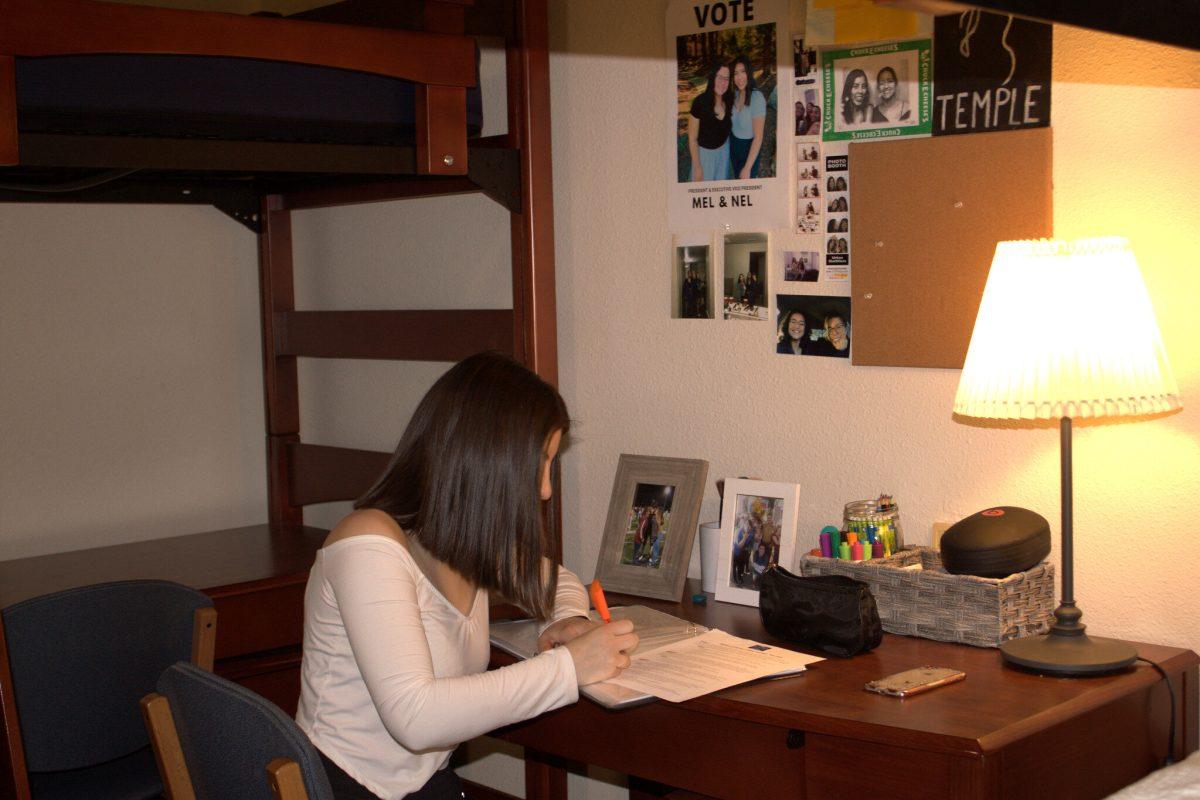The COVID-19 pandemic is leading students to live a traumatic experience that only leaves them to question when the ordeal will end. Recently, Sonoma County announced the extension of shelter-in-place orders until May 3, which means that students at Sonoma State will not come back to campus for the remainder of the semester.
All students from the U.S., whether they are K-12 or college level, are encountering some kind of hardship in the absence of face-to-face classes. There is enough evidence to say that college students’ mental health has been of concern for some time, attributable to the fact that students are experiencing high amounts of psychological problems.
In a survey shown by the American Psychological Association, anxiety is the top presenting concern among college students (41.6%), followed by depression (36.4%) and relationship problems (35.8%). This survey was specifically conducted to figure out how college students’ psychological problems are evolving.
With being isolated, stuck at home, students are now more susceptible to grow into a deeper depression and possibly become more anxious about how things will be different in each of their classes. Depression can affect students’ capacity to study, work, interact with others, and even take care of themselves. Being secluded to the outside world is very difficult when a young person has so much energy.
Before this shelter in place was announced, when everything was normal, students already had anxiety and stress because of regular class work. Some ways students coped with stress was going to work, working out at the gym, hanging out with friends, and even talking to advisors at school.
As a result of the pandemic, now many are jobless, gyms are closed, and hanging out with friends is not recommended. To assist students, Counseling and Psychological Services, CAPS, advisors at SSU are available through phone and video Monday- Friday, 9 a.m. to 12 p.m. Jairo Villalobos, a third-year SSU student and member of the university’s men soccer team, said that for him, not being able to exercise has been the hardest because he exercises and trains about six days a week.
Villalobos is a goalkeeper coach for kids in Santa Rosa, and he said that what is keeping him away from such stress or anxiety is being able to make at home workout videos for the goalkeepers that he trains. Though he tries to keep himself busy with school and training the kids, he said, “I do miss seeing my friends, but being able to FaceTime or Zoom them has proven to be helpful. If anything, I just miss human interaction in general because you don’t feel as isolated and it makes things feel normal in a way. Clearly, if I was not a coach, I would be struggling because every time I stream these sessions I am surrounded by a group of kids who want to learn and get better.”
Students and teachers all over the country are having difficulties adapting to this new lifestyle. Teachers have had to change the way they are grading, change the assignments they are giving to students, and overall change the whole dynamic of the class. Not only are college peers having this change, but all school systems are dealing with this new normal.
An SSU alumni who is now a high school teacher at Roseland University Prep in Santa Rosa, Mr. Doherty, shared his concern for how successful some of his students might be, “Typically when I meet with students face to face in class, I can get a good feel for the room and determine how to motivate them to complete their work. Without having direct contact, that makes things challenging. Those students who are curious and motivated will find ways to keep their minds active and will no doubt complete assignments to the best of their ability. I am concerned about those students who are indifferent or unmotivated.”
No doubt will there be students that are unmotivated, and it’s times with trauma like these where students need their teachers the most. Some students don’t feel comfortable enough to talk to their parents about how they feel or what they are going through.
Mr. Doherty even brings up a chilling truth of what could be going on in students’ homes: “This crisis is scary. Not only is a virus causing fear and anxiety, but parents are losing jobs, people are turning to drugs and alcohol to cope, and families are forced to spend every waking moment together. As has been widely reported in the media, cases of domestic violence and substance abuse are sure to escalate in the coming weeks and months. Our students are experiencing all of this.”
He continued, “Additionally, the mental health issues caused by isolation and lack of physical activity and nature therapy is real and cannot be overstated. On top of all of that, students are now being forced to spend even more time in front of a screen, including being on social media, leading to an increase in all the well-documented problems those can cause. I’m still searching for answers as to how to best approach this situation and am extremely concerned for my students’ well-being.”
It’s times like these where we all have to come together by being apart. Students will remember this experience forever, which is why it’s so concerning and important to have them not undergo so much damage, for there can be serious consequences in the future. The disruption of their normal activities has become challenging, and so far, not in a good way.





![[Both photos courtesy of sonoma.edu]
Ming-Ting Mike Lee stepped in as the new SSU president following Sakakis resignation in July 2022](https://sonomastatestar.com/wp-content/uploads/2024/04/CC4520AB-22A7-41B2-9F6F-2A2D5F76A28C-1200x1200.jpeg)


























